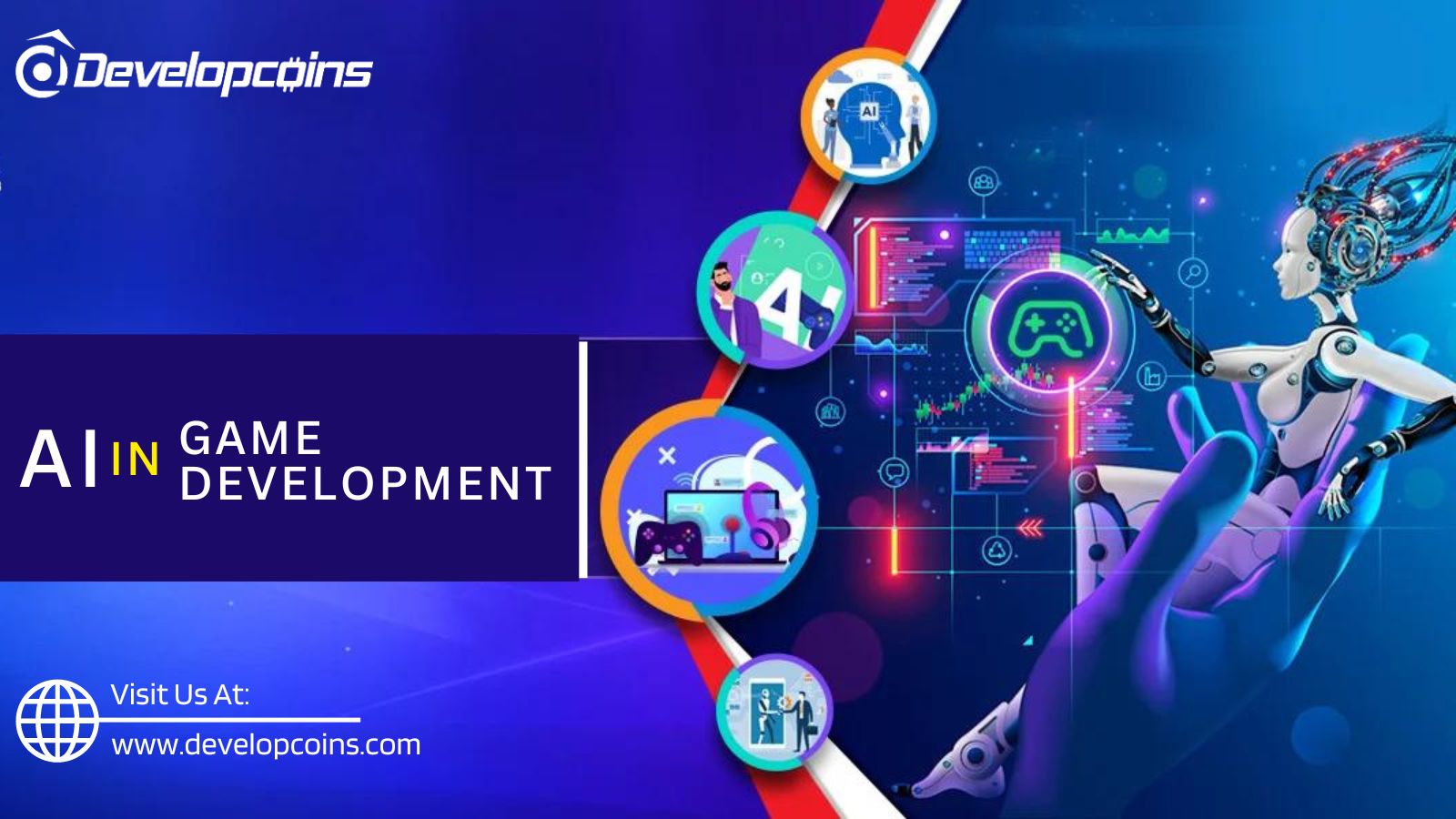

Explore the role of AI in games and understand its ability to improve the gameplay, revolutionize the game development process.

Due to the growth and popularity of artificial intelligence (AI), the gaming industry has seen a significant transition in recent years. The market for games leveraging AI tech was estimated to be worth USD 229.16 billion in 2021 and is now expected to reach up to USD 545.98B in 2028. This enormous figures have given investors the hope to invest heavily in this industry and make a fortune.
Before we go too far into this topic, it would be helpful to have a look at some important statistics in order to get a thorough understanding of the market.
AI is an exceptional technology and Gaming is one of the main areas. Artificial intelligence refers to the creation of NPCs (non-player characters) with intelligent and responsive behavior that is comparable to human intelligence. During gameplay, these NPCs are managed by human players. AI-based games are improving the overall gaming experience. With the aid of technology, game designers may build a realistic scenario that completely engrosses the player and makes him feel like a part of the narrative.
Due to the intense rivalry in the market, every game creation company aspires to create a game that provides a unique experience for its players. This is where AI technology excels.
The idea of a game as a whole is artistic, and there are always more chances to approach it from a more original perspective. The following are some of the top ways AI is transforming the gaming industry:
Realistic and Smarter:
The best feature of AI-centric games is that they provide the player with a far more practical foundation. When it comes to artificial intelligence and its effectiveness in gaming, the entire concept of gaming has experienced a radical upheaval, whether it be through the incorporation of 3D techniques or even lifelike movements.
Enhancing the Gaming Experience:
Artificial intelligence has made a significant promise to enhance the overall gaming experience. With its manifold advancements, AI has truly revolutionized how we engage with games, taking our enjoyment to new heights.
Empowering Game Developers:
Due to artificial intelligence, game developers now have the freedom to unleash their creative potential. The gaming world has become a canvas where anything is possible, all thanks to the incredible capabilities of AI. This empowerment allows developers to strive for unparalleled and unique gaming concepts.
Efficiency in Game Development:
Leveraging artificial intelligence in game development not only saves time but also proves to be cost-effective. The remarkable speed at which games can be developed with the assistance of AI is truly impressive, making the process highly efficient.
Dynamic Environments: Real-time environment changes are possible in AI games. Compared to games with a set environment, this enables greater complexity and unpredictability.
AI Opponents: AI opponents can be designed to employ a variety of tactics to test the player and add excitement to the game.
Adaptive Learning: Artificial intelligence (AI) video games are capable of adaptive learning, which allows them to improve over time.
Procedural Generation: Real-time level and opponent generation in AI games makes the game more unpredictable and presents a constantly changing challenge.
Natural Language Processing: AI games can analyze player commands and determine the player's intent using natural language processing.
Real-Time Decision Making: AI games have the ability to make instantaneous decisions, enhancing the game's responsiveness to the player's actions.
Realistic Physics and Animation: AI games can incorporate lifelike physics and animation to build a game world that feels authentic and believable.
Audio Recognition: By utilizing audio recognition, AI games can decipher player commands and comprehend their intentions.
Autonomous AI Agents: In a virtual environment, autonomous AI agents are programmed to function freely. These characters may decide when and how to behave, interact with the game's environment, and communicate with other characters.
Natural Language Processing (NLP): NLP refers to AI's capacity to comprehend and interpret human language. Many games use this technology to facilitate user interaction with other players and the game itself.
Adaptive Complexity: This feature enables the game to change its level of difficulty in response to the player's performance. This keeps the game exciting as the difficulty may be changed to suit the abilities of each participant.
Automated level layout: This technology employs artificial intelligence to make levels for games. This makes it possible for developers to create a wide range of levels for their games quickly and simply.
AI-Driven NPCs: Non-player characters (NPCs) in games are characters that the AI manages. NPCs may now respond to player activities and behave accurately with this technology.
A new era in the gaming industry is being ushered by the creation of AI games. AI would soon transform the way we build, play, and experience games with its limitless abilities.
However, the gaming sector is still at its early stage of AI adaptation, the future of AI holds an exhilarating promise for both gamers and game developers. It guarantees an enthralling journey filled with exploration, groundbreaking advancements and sheer enjoyment. As a leading game development company and a thriving AI solutions provider, the experts at Developcoins are proficiently improving with the cutting-edge AI tools and also have a keen observation over the current AI market trends. To keep yourself updated on the advancing AI tech's feasibility, get connected with us.